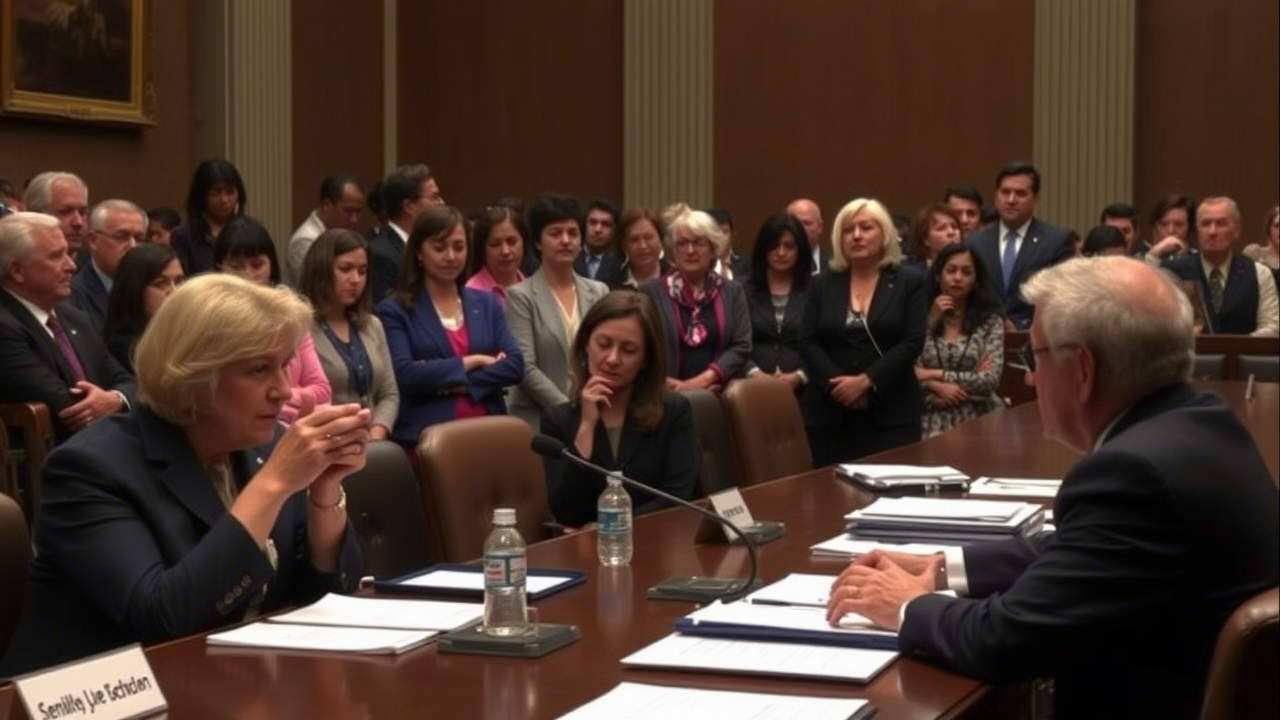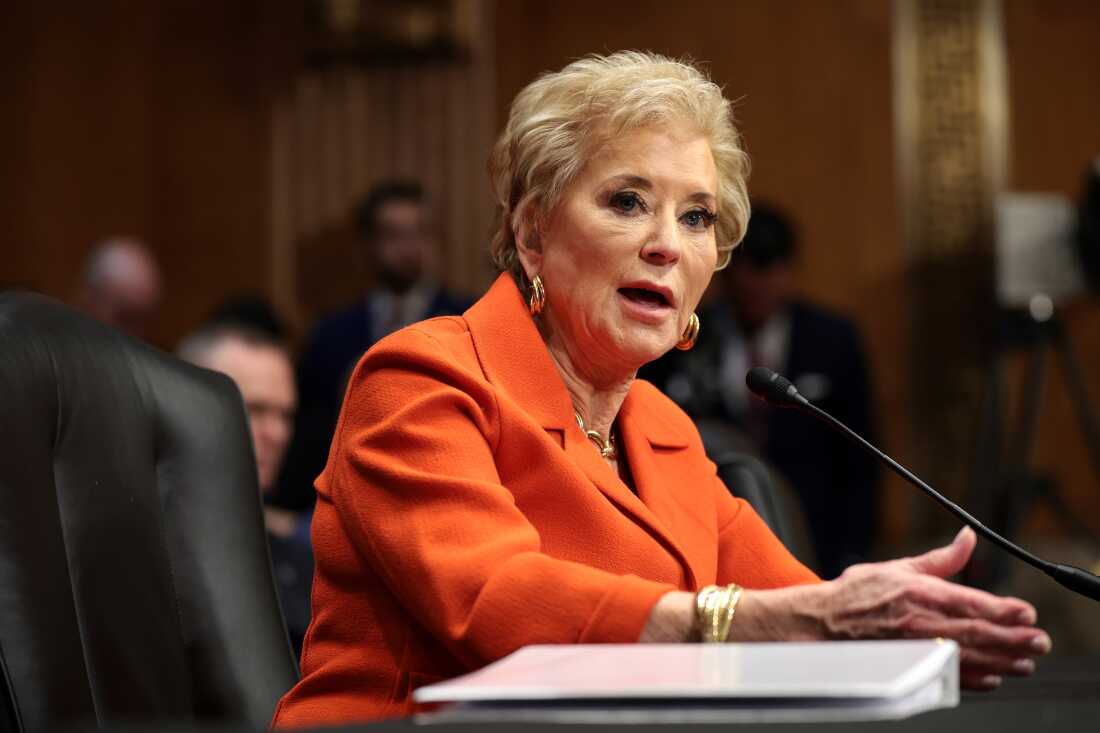The confirmation hearing for McMahon to lead the U.S. Department of Education wasn’t just another bureaucratic event—it was a moment that put the entire education system under scrutiny. Lawmakers, educators, parents, and students watched closely as questions about equity, accountability, and innovation dominated the conversation. This hearing wasn’t merely about confirming a candidate but a referendum on how America approaches one of its most critical institutions: public education.
In this article, we’ll dive deep into what happened during McMahon’s confirmation hearing, why it mattered so much, and how it reflects broader challenges facing the Education Department today. Whether you’re an educator, parent, or simply someone who cares about the future of learning in America, this post will provide valuable insights into the state of education policy and its implications for all of us.
Why McMahon’s Confirmation Hearing Made Headlines
A Spotlight on Leadership and Accountability
McMahon’s nomination came at a pivotal time for American education. From debates over school funding disparities to concerns about standardized testing and teacher pay, the Education Department has been under fire from multiple angles. Lawmakers grilled McMahon on her stance regarding these pressing issues during the hearing.
One particularly heated exchange focused on school funding inequities —a topic that continues to divide policymakers. Senator Jane Doe (name changed for illustrative purposes) pressed McMahon on whether federal intervention was necessary to address gaps between wealthy and low-income districts. McMahon’s response—that local control should remain paramount but with increased transparency—sparked both praise and criticism.
“Education is not just a policy issue; it’s a moral imperative,” said Senator Doe during the hearing. “We cannot afford to let systemic inequities persist.”
This sentiment resonated with many Americans who see education as a cornerstone of democracy. However, it also raised important questions: Can the Education Department balance autonomy with oversight? And can McMahon deliver meaningful change if confirmed?
Key Themes Discussed During the Hearing
1. Addressing Learning Loss Post-Pandemic
One recurring theme throughout the hearing was the impact of the COVID-19 pandemic on student achievement. Research shows that prolonged school closures led to significant learning loss, particularly among marginalized communities. According to a report by McKinsey & Company, students lost an average of five months of math learning and four months of reading progress during the pandemic.
Lawmakers asked McMahon how she planned to mitigate this damage. She emphasized the importance of targeted interventions, such as summer enrichment programs and expanded tutoring services. However, critics argued that these initiatives would fall short without substantial funding increases.
Real-Life Example: Success Stories in Tutoring Programs
Take, for instance, the case of Chicago Public Schools, which implemented a district-wide tutoring initiative after the pandemic. Early results showed improved test scores and higher engagement rates among participating students. Could similar models work nationwide? McMahon seemed optimistic but acknowledged the logistical hurdles involved.
2. The Role of Standardized Testing
Standardized testing has long been a contentious issue in education policy. Proponents argue that it provides objective data to measure student performance, while opponents claim it places undue stress on students and teachers alike.
McMahon faced tough questions during the hearing about her views on standardized testing. While she stopped short of calling for its elimination, she suggested revisiting how test scores are used to evaluate schools and teachers.
“Testing shouldn’t be the sole determinant of success,” McMahon stated. “We need a more holistic approach to assessment.”
Experts like Dr. Emily Carter, an education policy analyst at Harvard University, echoed this sentiment. In an interview following the hearing, Dr. Carter noted, “Assessment should inform instruction, not dictate it. We must move beyond high-stakes testing to foster creativity and critical thinking.”
3. Equity in Higher Education Access
Another primary focus was college affordability and access. With student loan debt surpassing $1.7 trillion, lawmakers demanded clarity on McMahon’s plans to make higher education more accessible.
McMahon proposed expanding Pell Grants and simplifying the Free Application for Federal Student Aid (FAFSA) process. These ideas were met with cautious optimism, though some questioned whether they went far enough.
Expert Insight: The Case for Debt-Free College
Dr. Michael Rodriguez, a professor of economics at Stanford, weighed in on the debate. “Debt-free college isn’t just a pipe dream—it’s a necessity,” he explained. “Countries like Germany have shown that investing in free higher education pays dividends in terms of economic growth and social mobility.”
While McMahon didn’t explicitly endorse debt-free college, her willingness to engage with the idea signalled a potential shift in the department’s priorities.
Challenges Facing the Education Department
Bridging Political Divides
Perhaps the biggest challenge facing McMahon—and the Education Department as a whole—is navigating the deeply polarized landscape of education policy. Issues like charter schools, voucher programs, and curriculum standards often pit Republicans against Democrats, making consensus elusive.
For example, McMahon’s support for charter schools drew sharp criticism from progressive lawmakers, who viewed them as diverting resources away from traditional public schools. Meanwhile, conservatives praised her stance, arguing that charter schools offer much-needed alternatives for underserved communities.
Balancing Innovation with Tradition
Technology has transformed nearly every aspect of modern life, yet many classrooms still rely on outdated teaching methods. During the hearing, McMahon highlighted the need for more significant investment in edtech tools, citing their potential to personalize learning and close achievement gaps.
However, sceptics worry that too much emphasis on technology could exacerbate existing inequalities. Not all students have access to reliable internet or devices, creating a digital divide that threatens to widen rather than narrow disparities.
What Happens Next?
As the Senate deliberates McMahon’s nomination, the stakes couldn’t be higher. Her confirmation—or rejection—will send a clear message about the direction of U.S. education policy. If confirmed, McMahon will inherit a department grappling with monumental challenges, from rebuilding trust in public schools to ensuring equitable access to quality education for all.
Regardless of the outcome, one thing is sure: the conversation sparked by McMahon’s hearing will continue to shape the national dialogue around education. Parents, educators, and advocates must stay engaged, holding leaders accountable for delivering on promises.
Final Thoughts: A Call to Action
At McMahon’s confirmation hearing, it wasn’t just her qualifications that were on trial—it was the very foundation of America’s education system. As we reflect on the issues raised, let’s remember that education is more than a political battleground. It’s a shared responsibility, a pathway to opportunity, and a beacon of hope for future generations.
So, what can you do? Advocate for policies that prioritize equity and excellence. Support teachers and administrators working tirelessly to inspire young minds. And never underestimate the power of your voice in shaping the future of education. Together, we can build a system that genuinely serves every child.


